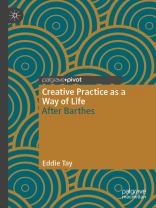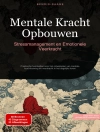This book combines autoethnographic reflections, poetry, and photography with the aim to bridge the gap between creative practice and scholarly research. Drawing on an innovative combination of different forms of knowledge, creative writing and street photographs are presented as means to reflect on the development of knowledge and self-knowledge through a thought-provoking dialogue with Roland Barthes’ post-structuralist work. What does it mean to be a creative practitioner in a world traversed by values of capitalism and artificial intelligence? What does it mean to teach creative practices in such an environment?
The urban landscape of Singapore, with the Jewel Changi mall, the Universal Studios, and Little India in the background, is the stage where the capitalist demands of modern city life grapple with the solitary act of writing poetry and taking photographs through the personal experience of the author. Capitalist realism and depression realism entwine with Barthes’ notion of vita nova in a mesmerizing phantasmagoria that drags the reader to the bowels and secret pleasures of the creative process.
İçerik tablosu
1 Introduction.- 2 Writing Poetry with Barthes.- 3 Singapore as Phantasmagoria.- 4 On Depression and the Creative Life as Project.- 5 The Pleasures of Learning to Write Language Poetry.- 6 A Poetics Journal.- 7 Creative Writing Online, Digital Ambience and Rhizomatic Practice.- 8 The Cultural Logic of Street Photography and Its Practice.- 9 Conclusion.
Yazar hakkında
Eddie Tay is Associate Professor in the Department of English at The Chinese University of Hong Kong, Hong Kong SAR. Born in Singapore and a long-term resident in Hong Kong, he is a poet and a street photographer, and director of Cart Noodles Press, the department’s recently-established literary imprint. In the Palgrave Studies of Creativity and Culture series he already published Hong Kong as Creative Practice (2022).












